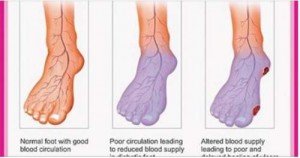
1. Quit Smoking
Smoking leads to the accumulation of fatty tissue in blood vessels , most of which become bad cholesterol. This reduces the diameter of blood vessels and increases blood pressure. High blood pressure cuts off the supply of blood which can lead to a stroke. By quitting smoking you can prevent a stroke. The risk of strokes because of smoking is higher in women who are on birth control.
2. Avoid Saturated Fats
Saturated fats are one of the main sources of dietary cholesterol, the root of most heart problems. Foods containing saturated fat should be limited as it accumulates in the form of thick sticky plaque in blood vessels, which increases blood pressure which can result in a stroke.
3. Exercise
Along with a healthy diet, physical exercise is important for heart health. Exercise strengthens the heart muscles and regulates the supply of oxygen in the blood. Oxygen keeps blood flow smooth and lowers blood pressure resulting in the maintenance of a healthy body mass index.
4. Eat More Vegetables
A diet full of green veggies and herbs helps eliminate harmful fats, the major cause of stroke. Green vegetables are high in fiber and contain essential vitamins and minerals.
5. Eliminate Trans-fat
Trans-fat is unsaturated fat treated with chemicals to increase shelf life. This fat is often found in fast food like pizzas, chicken, and burgers. Food containing this type of fat raises bad cholesterol making them major contributors to the causes of strokes.
6. Avoid Alcohol
Alcohol increases fat around the waist and abdomen. Research has shown that heavy alcohol consumption increases the risk of stroke by 45%. Alcohol consumption should not be more than 2 drinks per day for men and 1 drink per day for women.
7. Reduce Sodium
Salt is a rich source of sodium with 40% sodium content. Increased sodium in your diet disturbs the sodium-potassium balance which leads to high blood pressure. Today almost all processed foods contain sodium-rich salt. The best way to limit sodium intake is to choose foods with sodium and calories in a 1:1 ratio.
8. Maintain Healthy Weight
Being overweight is often proportional to heart disease. Maintaining a healthy weight and BMI is the best way to prevent heart disease.
9. Reduce Stress
Stress is a major factor behind high blood pressure and heart disease. There are various stress management techniques that can be used to combat stress. Staying happy and living a stress-free life is the key to the heart.
10. Manage Diabetes
People suffering from diabetes are at greater risk of stroke and other heart diseases. Managing blood sugar is one thing you can do to combat both diabetes and stroke. Replacement of sugar-based foods with fresh fruits and vegetables is a good way to do it.







